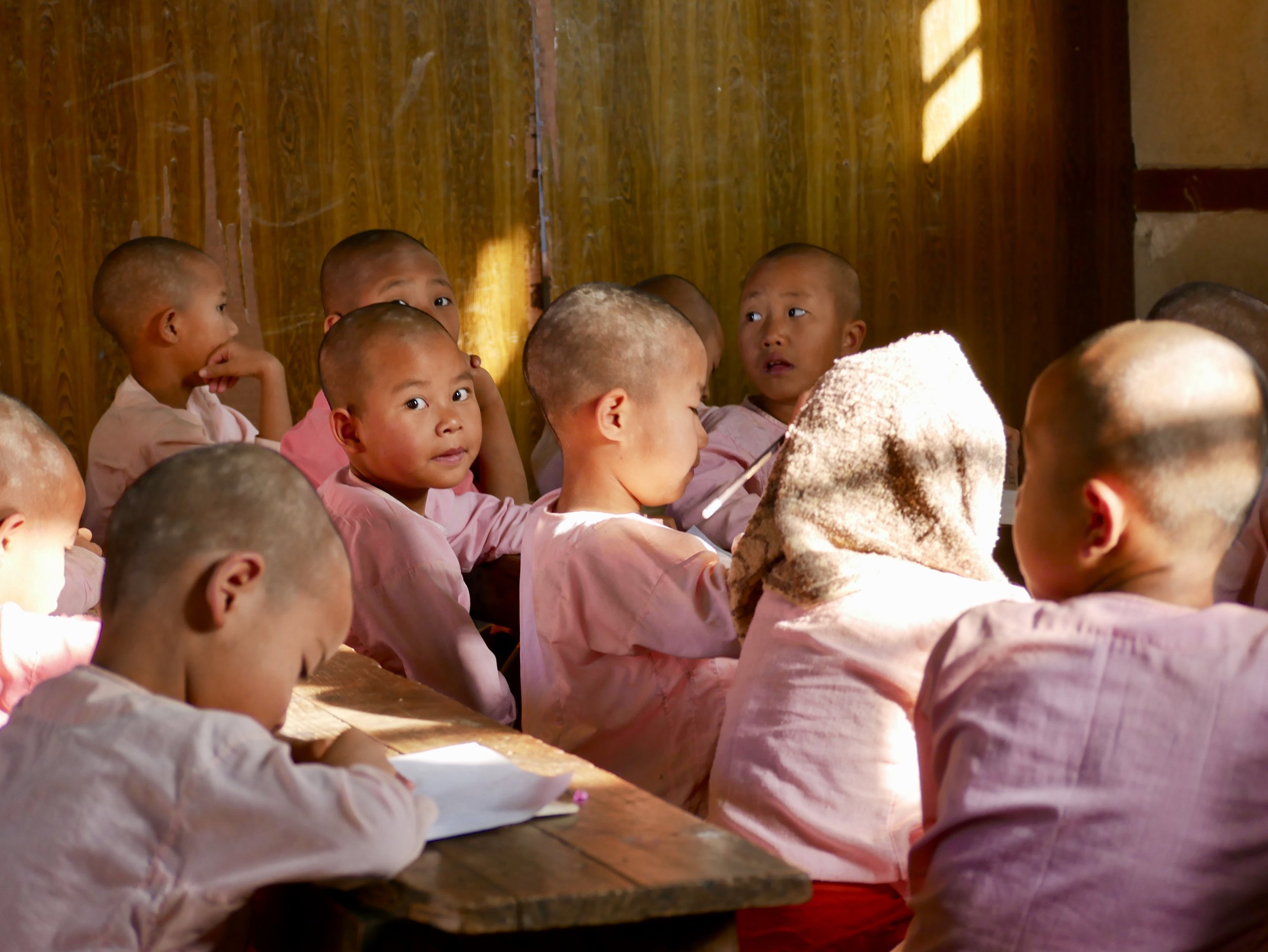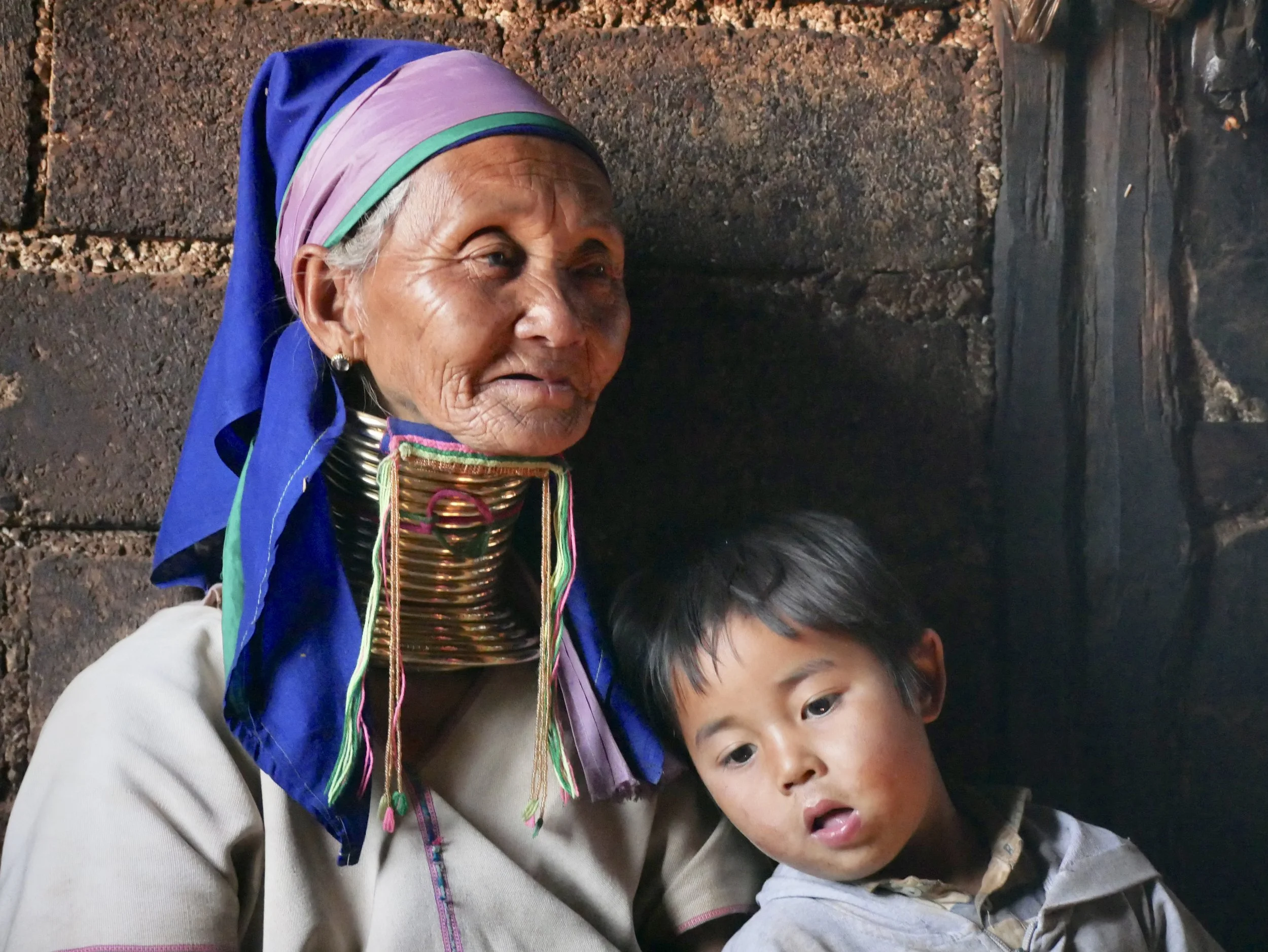South East Asia
Saigon orchids, Saigon/ Ho Chi Minh City, Vietnam. March 2025
Watching me, watching you, Saigon/ Ho Chi Minh City, Vietnam. March 2025
Young monks, Battambang, Cambodia. February 2025
Morning walk. Siem Reap, Cambodia. May 2023
Doing the dishes, Phnom Penh, Cambodia. February 2025
Through the window, Siem Reap, Cambodia. February 2025
Cai, Buddhist monk. Siem Reap, Cambodia. May 2023.
“I’ve heard of England, but I don’t know where it is,” said Cai. He had asked me one of the standard questions asked of travellers, “Where are you from?” We were sitting in the compound of a monastery in the Cambodian countryside, about an hour’s drive from Siem Reap. It was late afternoon and the gentle breeze both lowered the temperature a little and warned of the forthcoming evening rain. Other monks sat smoking in the shade, one of the younger ones crossed the compound to where we were sitting and climbed into a hammock to listen to our conversation.”
When I arrived, Cai was cleaning his teeth. He was extremely slim, gaunt even, his ribs clearly visible under his exposed right shoulder. His shaved head emphasised his lack of weight. His chest, throat and chin were tattooed. I asked him if the dots on his chin had a meaning. “It’s for protection,” he said. Many Cambodians believe that tattoos can ward off evil spirits or bad luck. We would return to this theme of protection and belief a little later.
He began to talk about his life: “I was born in Battambang province. My family worked on the land. I never went to school. I cannot read or write. When the other monks read the scriptures, I just follow them and join in the prayers. I got married when I was 22 and I have three children. I became a monk when I was 58, after my wife died. I couldn’t live with my children and so I came here.”
“I joined the army when I was 17 or 18. I wanted to support Sihanouk (the former Cambodian head of state) against Lon Nol (a former Prime Minister who led a coup against Sihanouk). I didn’t like Lon Nol and I was against the coup. Later, Sihanouk joined forces with the Khmer Rouge and so I ended up fighting alongside their soldiers.”
I asked him about the mark between his eyebrows. He said: “In 1982 I was involved in the fighting against the Vietnamese, somewhere near the border with Thailand. I felt a burning sensation on my forehead and realised I’d been hit. I was unconscious for almost two days, but I didn’t die thanks to the blessed scarf I wore, which protected me. I woke up in a Thai hospital where I was looked after by French doctors.” He was silent for a few minutes and then asked if I wanted to photograph him. I did, and he kindly stood for a series of pictures.
Girl on a scooter. Phnom Penh, Cambodia. May 2023.
Ko Myint Lwin in his barbershop, Yangon, Myanmar. January 2019
I don’t have much hair.This doesn’t stop me from regularly visiting my local Turkish barber, to stay presentable, enjoy the old style service and gossip. I try to maintain this habit while traveling and this has led to some unusual experiences. In Nadi, Fiji I had my hair cut in a shop that doubled as a dry cleaners. The barber had to keep stopping to deal with customers who were dropping off or collecting their garments. In Lucknow a group of elderly customers insisted I go to the front of the queue and then quizzed me about how I knew a little Hindi. I explained that I’d picked up some words from vintage Bollywood songs. They persuaded me to sing for them. I am no singer, but I managed the chorus of Sar Jo Tera Chakraye from the 1957 film Pyaasa and they seemed satisfied - if a little surprised.
Ko Myint Lwin made no such demands of me when he cut my hair in Yangon in January 2019. He sat on one those brightly coloured plastic schools, ubiquitous to South-East Asia, waiting patiently for customers. The counter of his open-fronted shop was covered with the paraphernalia of his trade - clippers, razors, hairdryers and sponges used to dampen necks about to be shaved. Despite his seeming patience, tiome appeared to be a preoccupation for Ky Myint Lwin. Two calendars and a clock hung on the wall as did a framed Koranic quotation and an aged electricity panel.
His elderly mother sat outside, talking to a group of traders from neighbouring stores and drinking tea from a nearby stall. She said that the barber’s chairs came from England and that they had been made in the 1950’s. I photographed Ko and his mother and was able to give them copies of the pictures before I left Yangon. I went back a year later to pay my respects and fund that they had sold the shop and retired.
Children of Nan Hu village, Inle Lake, Myanmar. January 2019
Pop Nyat Khaing School, Loikaw, Myanmar. January 2020
I I visited a school for nuns in Loikaw, Kayah State during January 2020. The teachers explained that a large proportion of the children were either orphans, or from poor families unable to take care of them. It is common for such children to be placed in a monastery or convent, where they will have somewhere to sleep, be fed twice a day and receive some level of education.
It was near the end of the school day and the children, after finishing their studies, were sitting at their desks drawing. The teacher encouraged me to look at their work. Some were very shy and covered their drawings with their arms, while others were keen to show off what they had done. Several of them had drawn a little house with a garden and stick people representing a family. The teacher invited me to take some pictures. A number of the children became excited and began laughing. One little girl pulled faces at me and put her tongue out. When she became bored, she turned away and went back to her work. I put the camera down and she turned to look at me again, as the dying sunlight caught the wall behind her. The class sang a “thank you teacher” song before going back to the convent where some of them began cleaning duties.
Bilone and grandchild, Kasae Kum, Myanmar. January 2020











